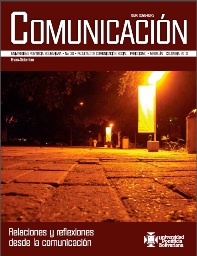Dimensión moral del lenguaje para Nietzsche. Comentarios al texto Sobre la verdad y la mentira en sentido extramoral y su relación con la semiología y la comunicación
Main Article Content
Abstract
During the 19th century humankind was struggling to achieve a positive and scientific truth making out the modern Scientific Method. Nieztsche claimed for subjectiveness setting down language as a subject matter while disapproving objectivity as an ideal for humanity and defining, since then, humankind of the 20th and 21st Centuries. Finally, humanity was conceived as a language-being, as a talking-being, as an entity founded by language and because of that, delirious; as a subjective being, as a poetic inhabitant existing symbolically and metaphorically. Without that historical fact, Communications Studies as we know them would be incomprehensible. So, with Friedrich Nietzsche human being becomes an academic category stablishing him as a matter, understanding humanas a communicating subject immersed in a linguistical dimension. His early text, On thruth and Lies in a nonmoral sense (In German, Über Wahrheit und Lüge im aussermoralischen Sinne: 1873), primal and potent as it was, would definitively become in history line a dawn of Nihilism, a vindication of subjectivity and also the beginning of the modern way 20th and 21st centuries understand either Linguistics either the real communicative possibilities of language. This paper concentrates some scholia about that particular Nietzsche´s work. The results of those specific words, but, of course, of the whole Nietzsche’s linguistical and philosophical theory, allowed the arise of Linguistics and Semiotics, the reinterpretation of either Hemeneutics (wich stays as the actual interpretation tool used by every Mass media student and Communications professional), either general human condition.

